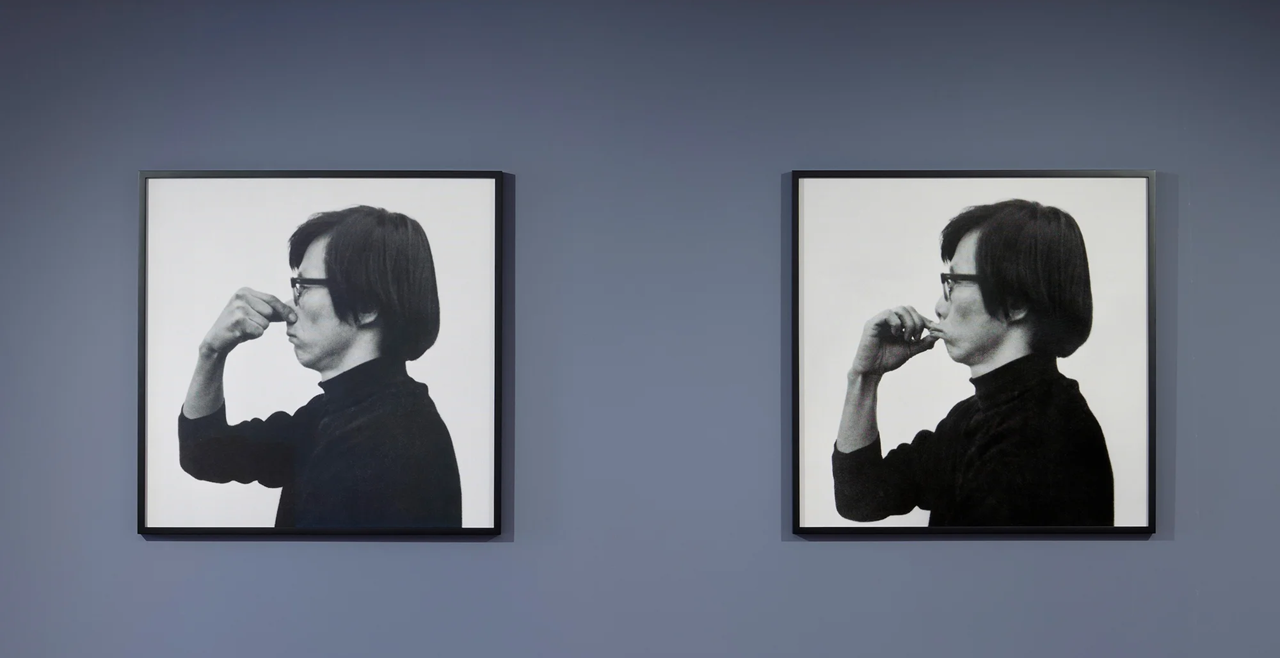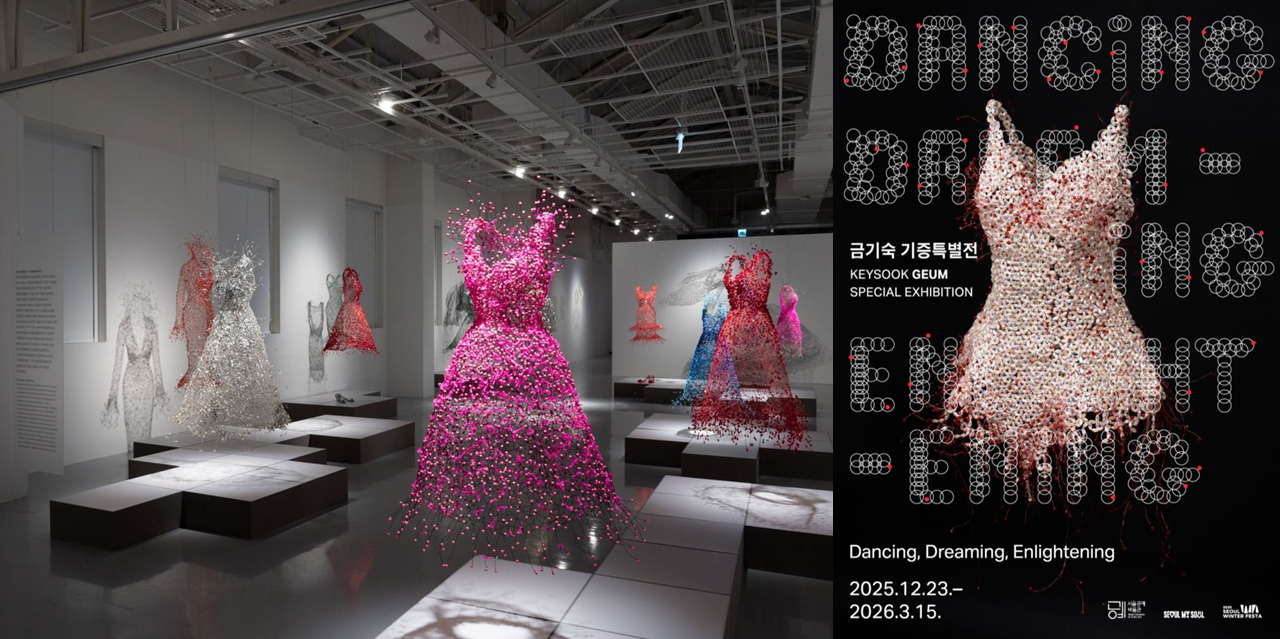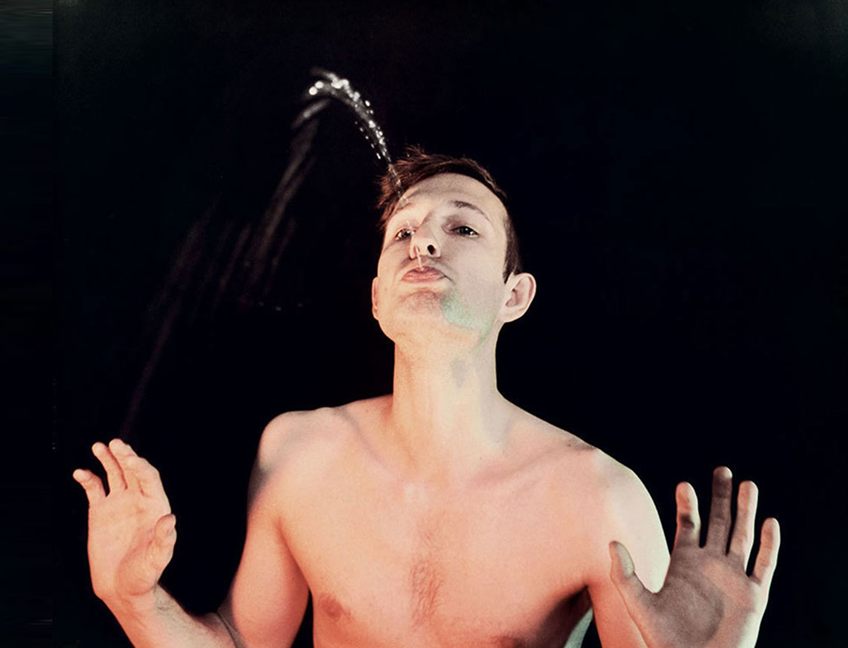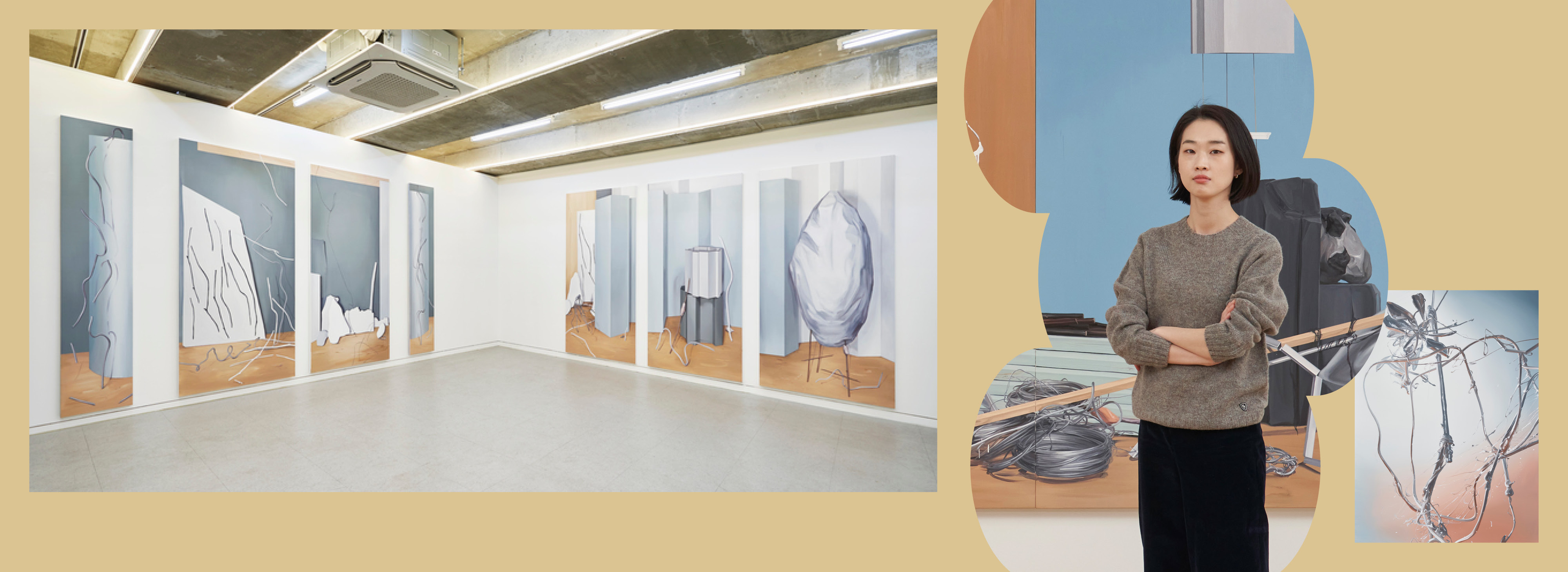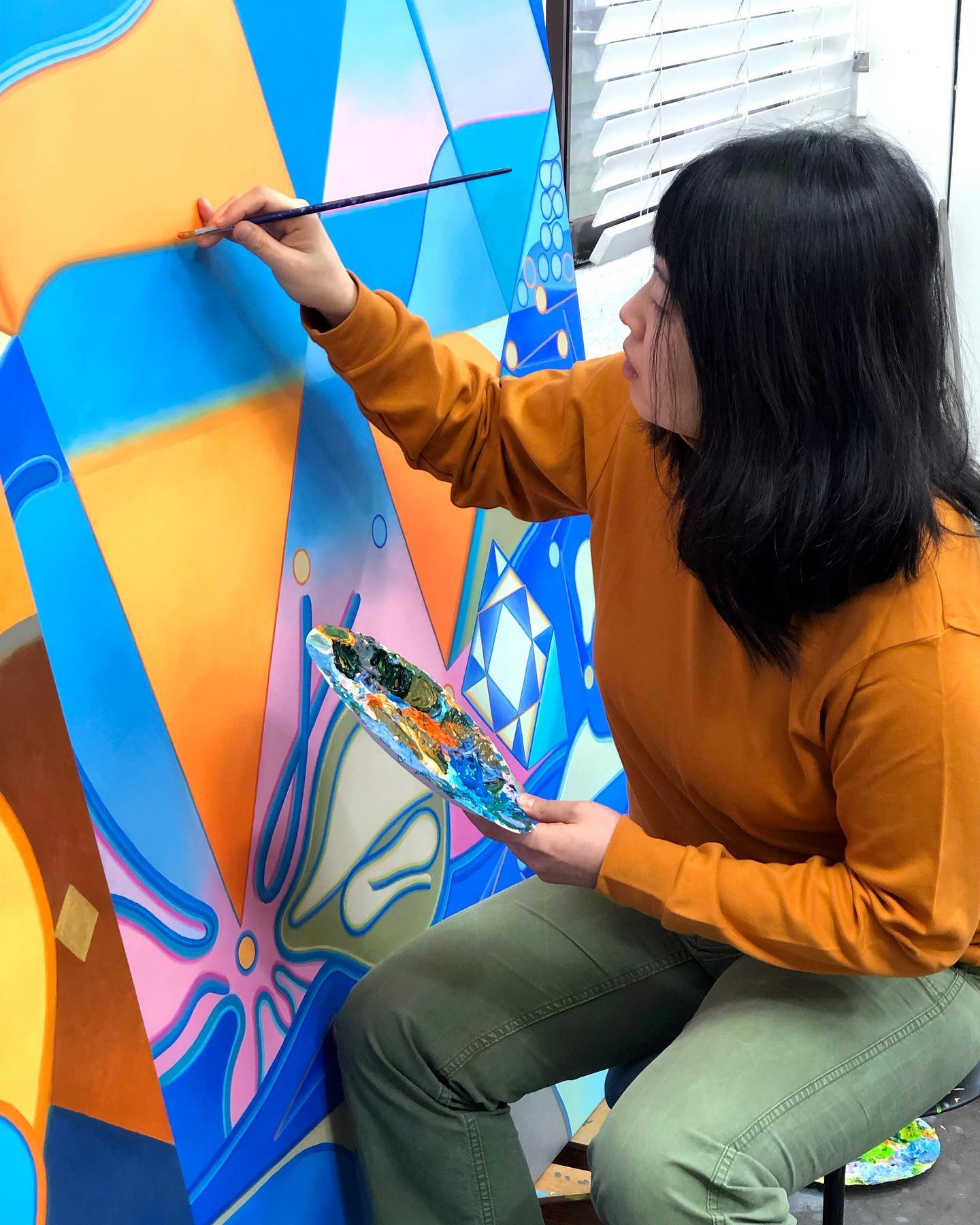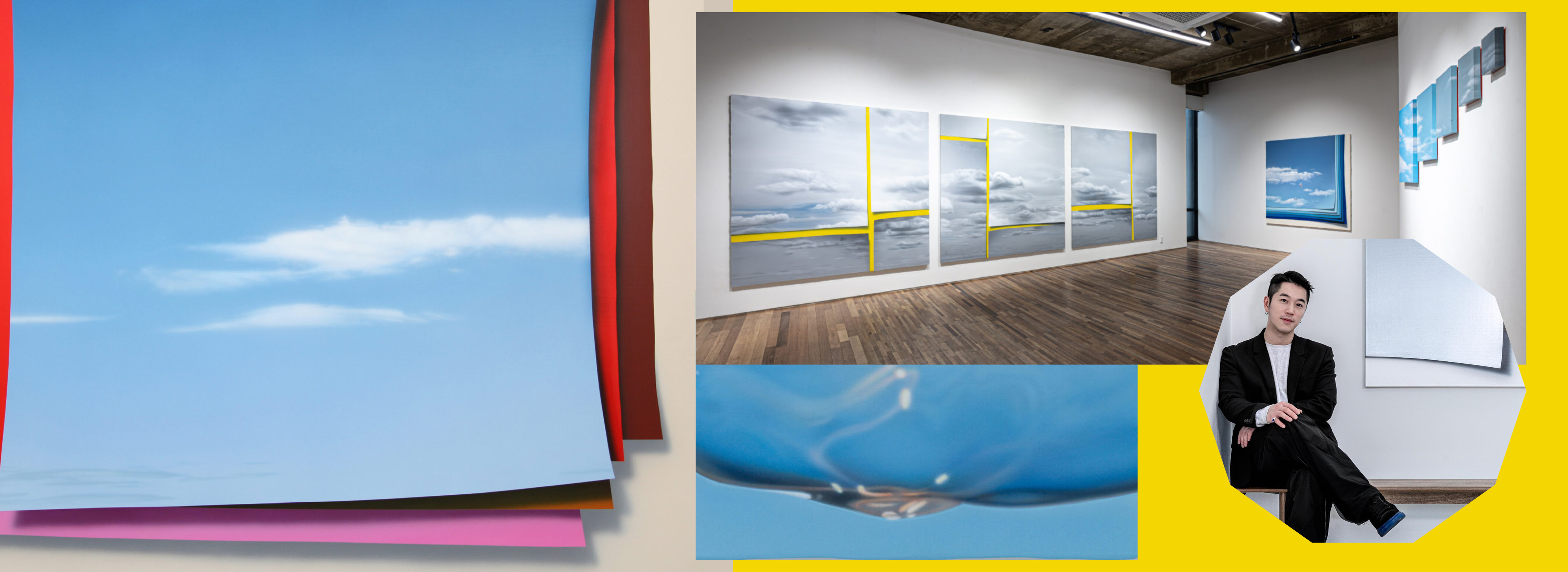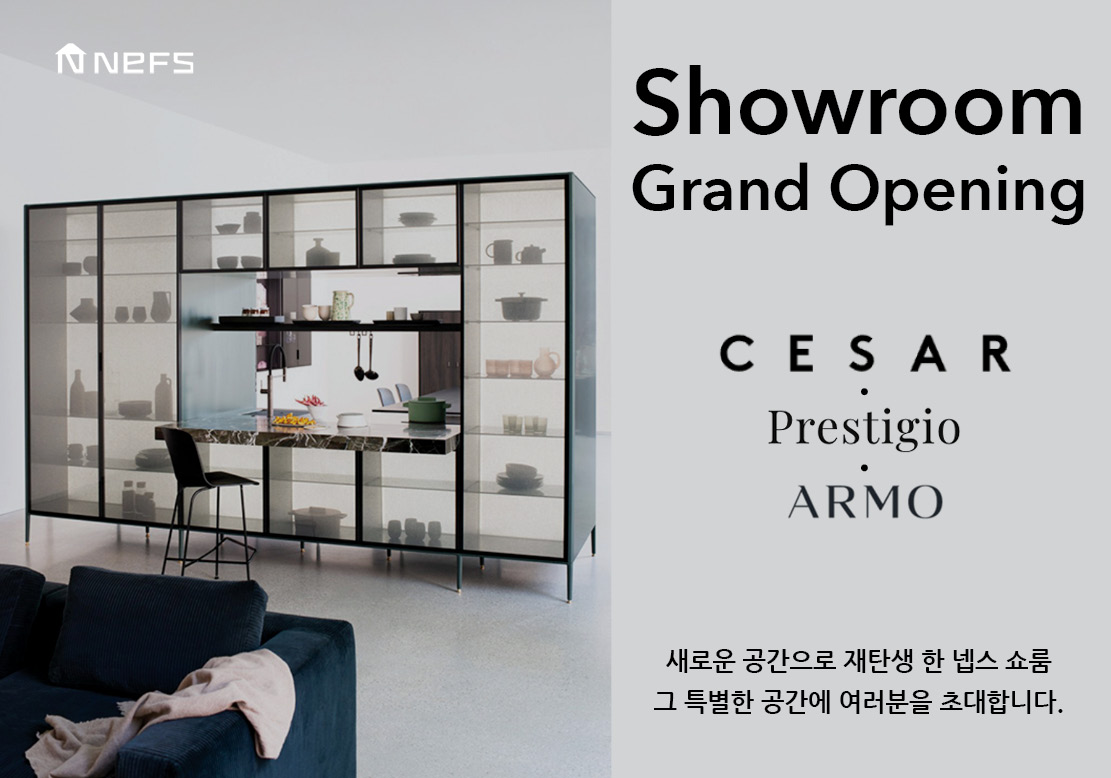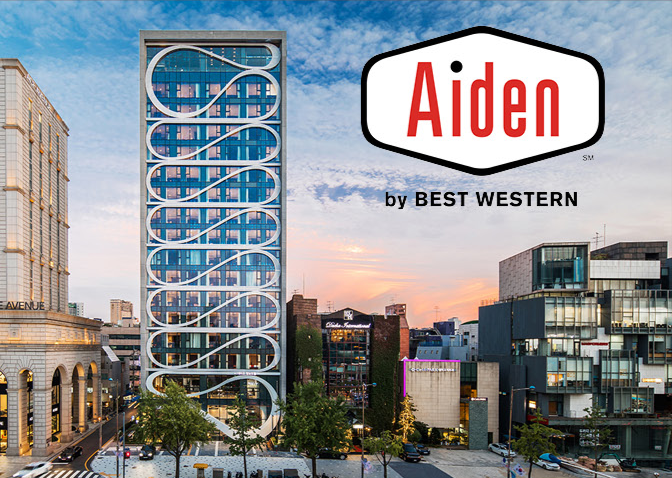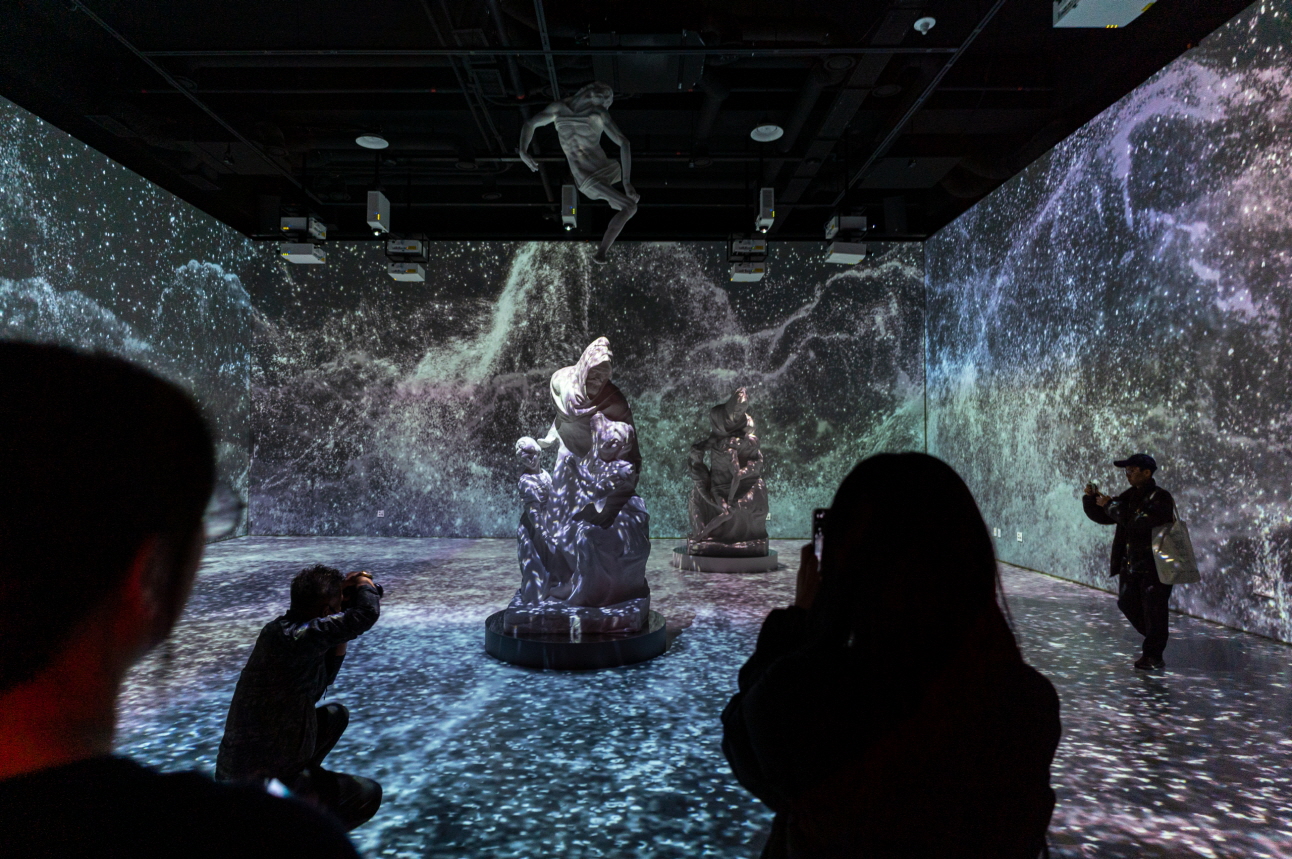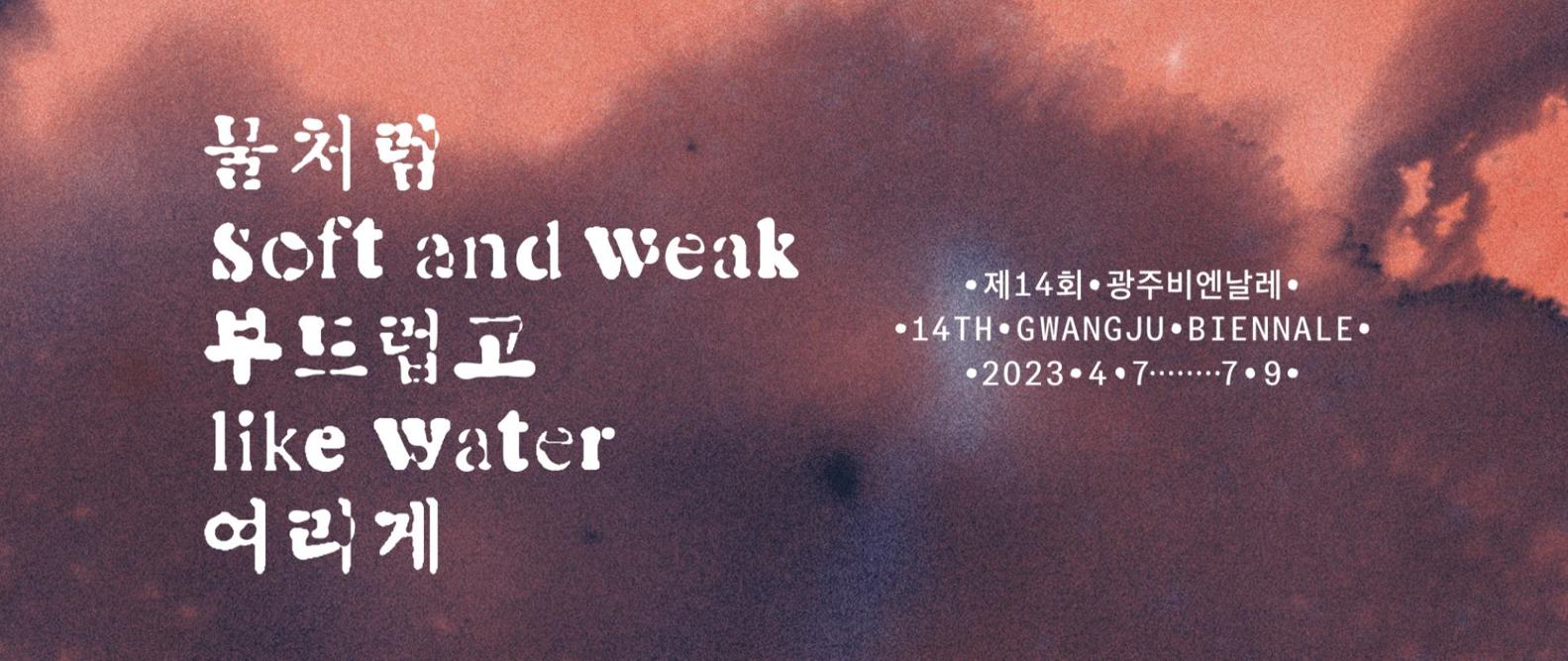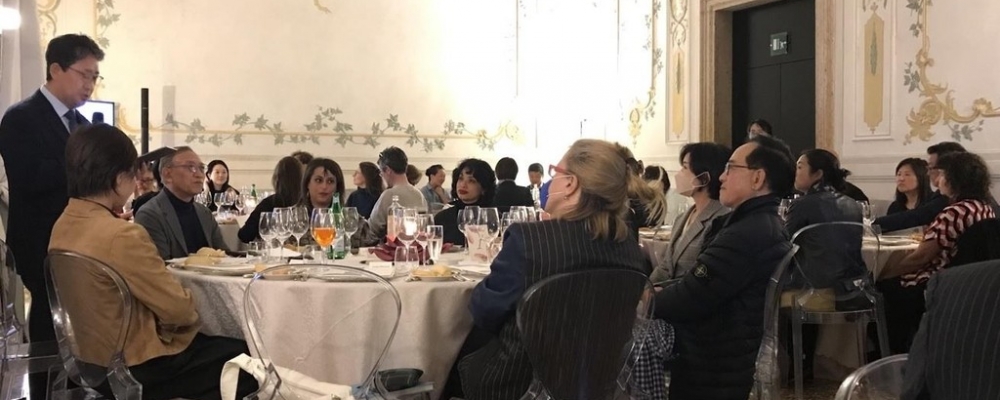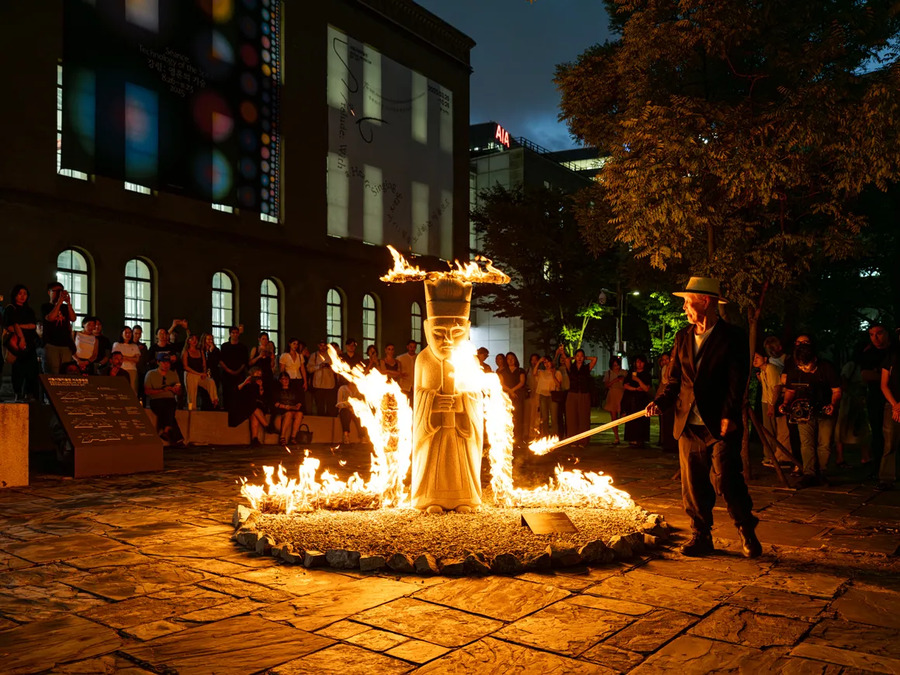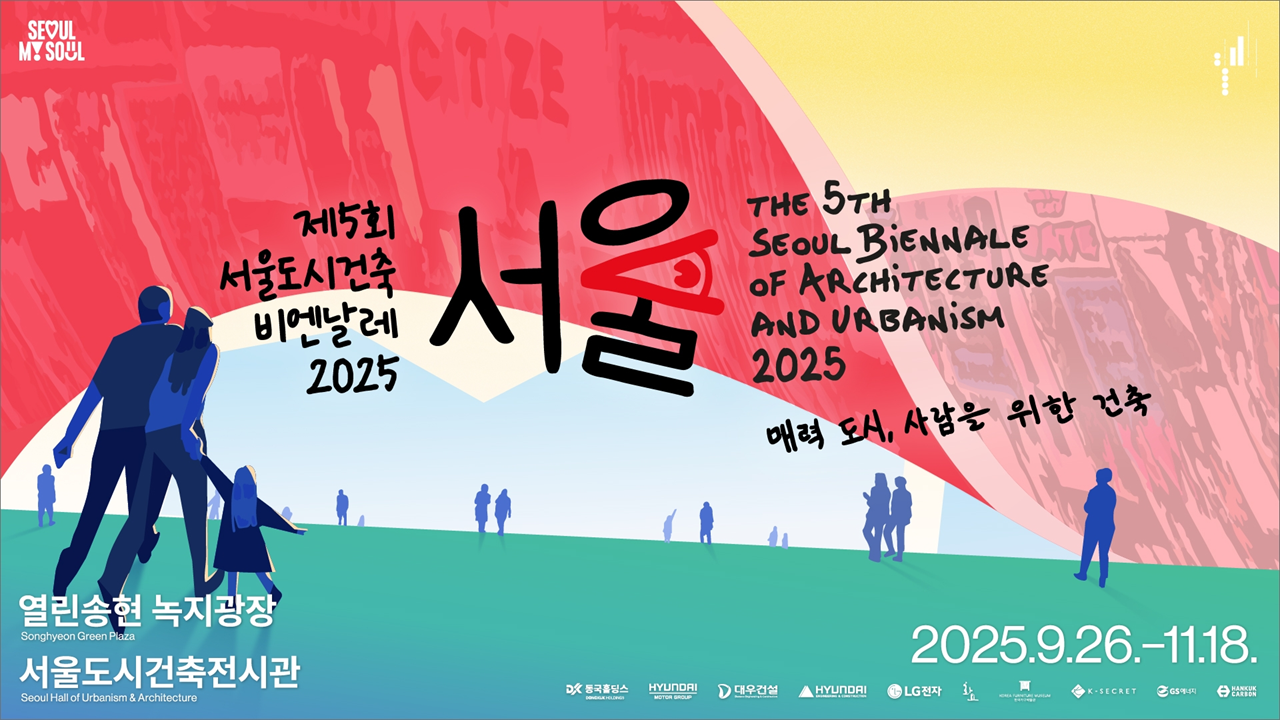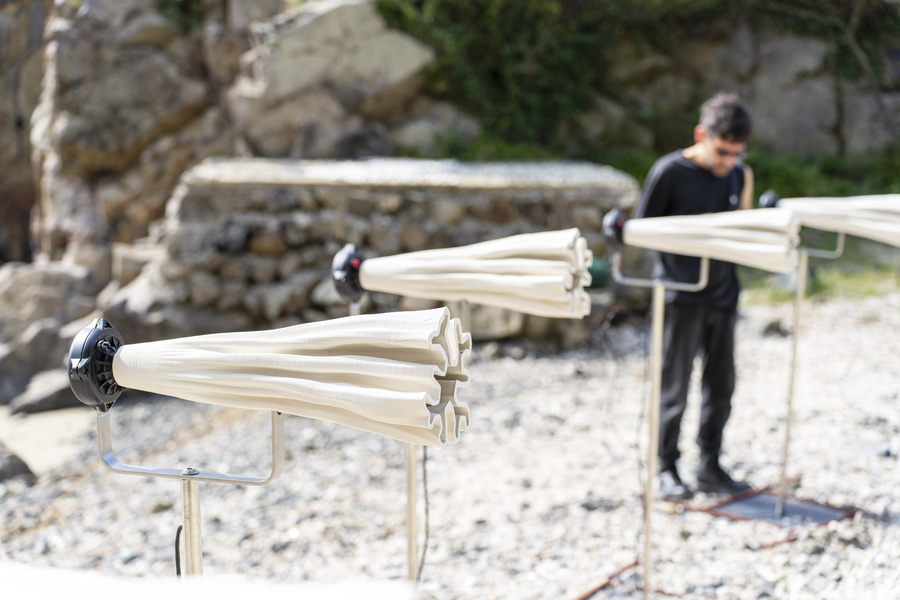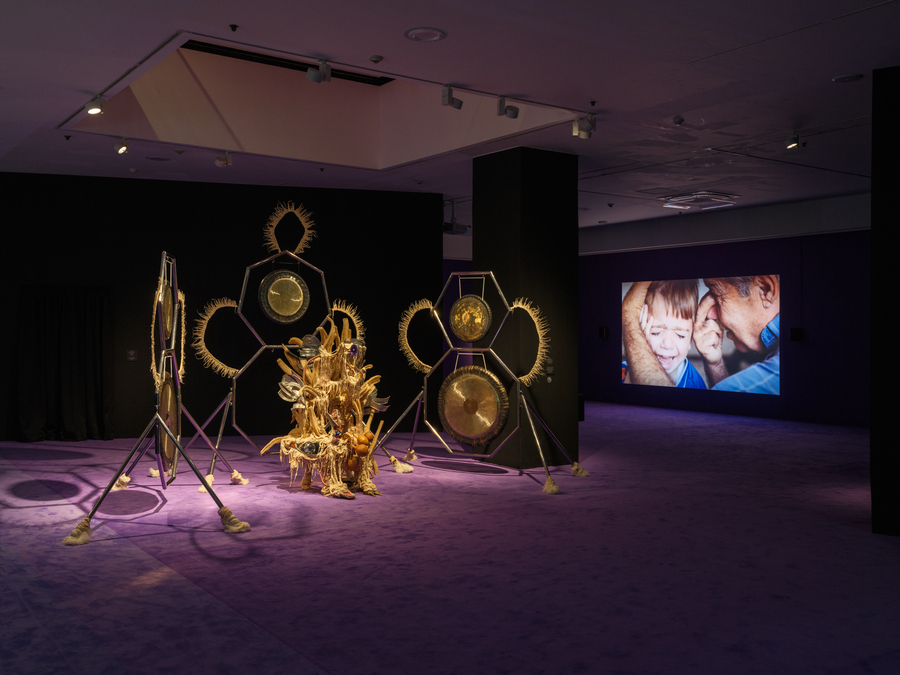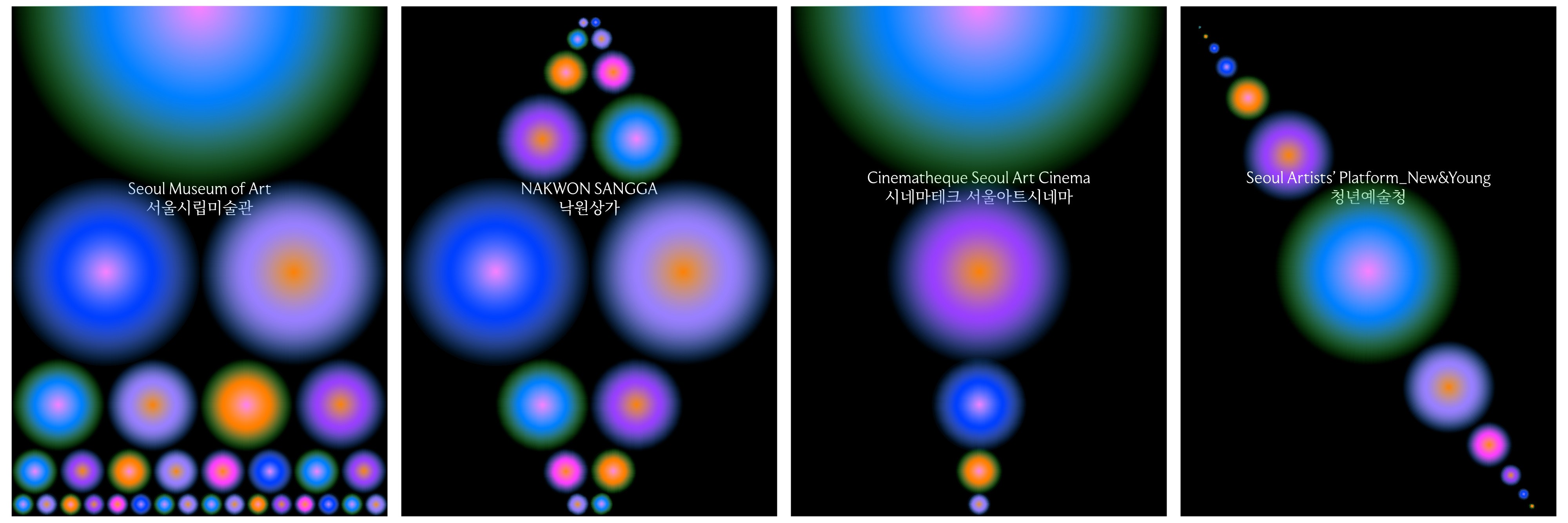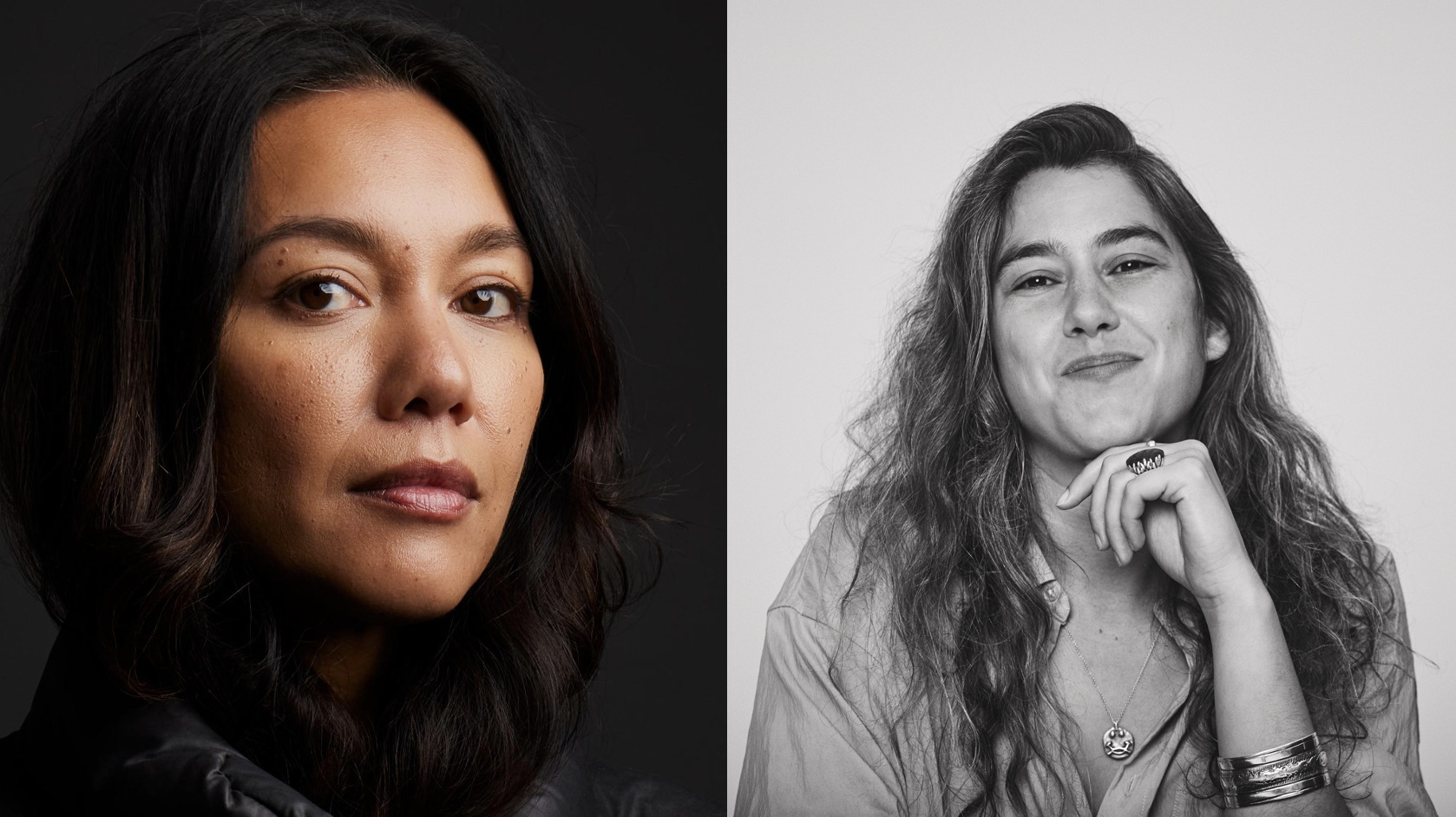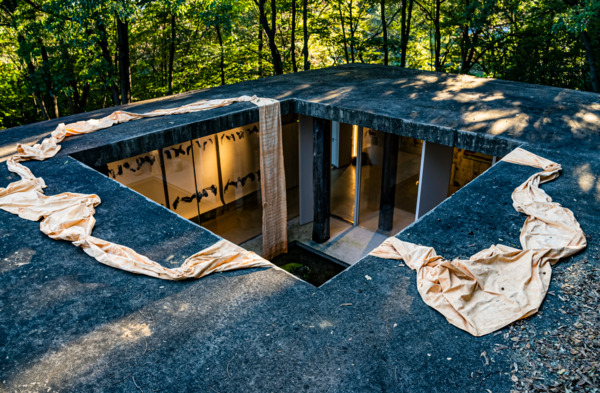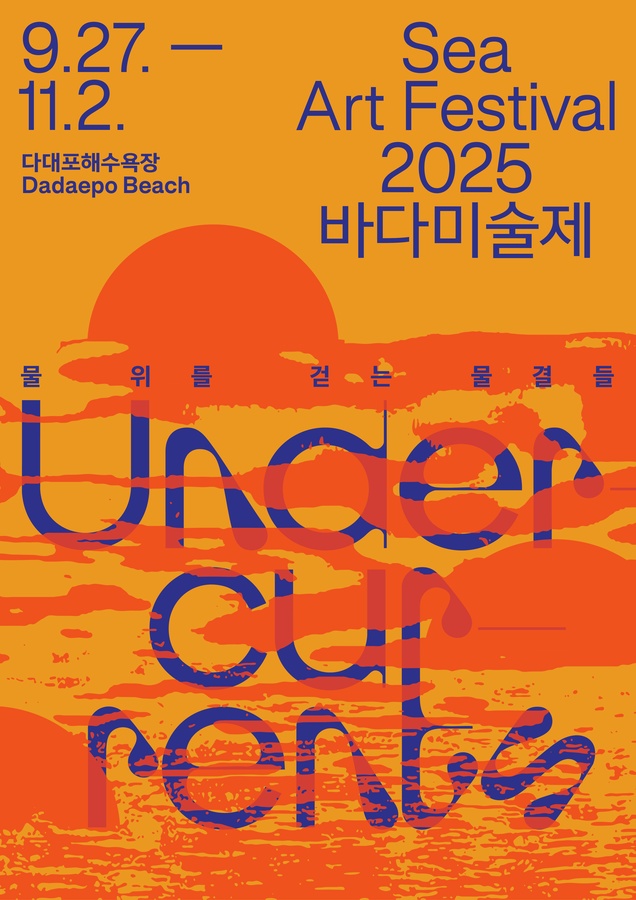On April 20, 2022, the Gwangju Biennale Foundation visited Venice, Italy, where they announced the title of the fourteenth Gwangju Biennale at an overseas briefing session and held the opening event for the 5.18 Democratization Movement special exhibition.
The Gwangju Biennale Foundation invited around sixty international and Korean art professionals to the briefing and announced that the title of the fourteenth Gwangju biennale is Soft and weak like water. The biennial will take place in Gwangju, Korea from April 7 to July 9, 2023.
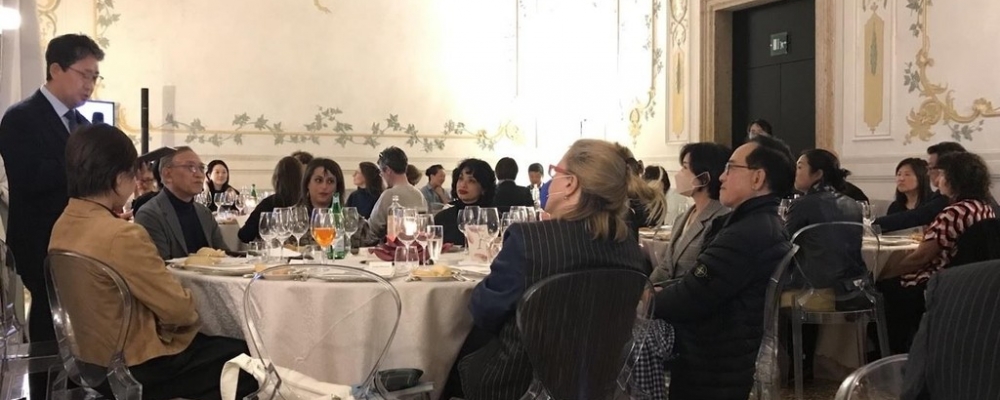 ⓒ Gwangju Biennale Foundation.
ⓒ Gwangju Biennale Foundation.The title is inspired by an expression from Dao De Jing (Tao Te Ching, 道德經), a central Taoist Chinese text attributed to the Chinese philosopher Lao Tzu: “There is nothing softer and weaker than water, and yet there is nothing better for attacking hard and strong things (柔弱於水)” (Dao De Jing, chap. 78).
Sook-Kyung Lee, who is the artistic director of the upcoming biennial, explained that, through the transformative potential of water, which can embrace contradictions and paradoxes, “the Biennale’s theme highlights the capacity of art to permeate deep into the individual and the collective, which enables us to navigate through the complexities of the world with a sense of awareness and direction.”
After visiting the site of Gwangju Biennale in February, Lee mentioned that the 14th Gwangju Biennale will embrace the ‘Gwangju spirit,’ which can be explained as democracy, resistance, justice, and multiplicity, as Gwangju is a symbolic city in Korean history where the people’s May 18th Democratic Uprising happened in 1980. Yet, the exhibition will transcend the regional boundary and take a planetary point of view to suggest a world where ethnic, cultural, and historical diversity is embraced and intertwined through contemporary art.
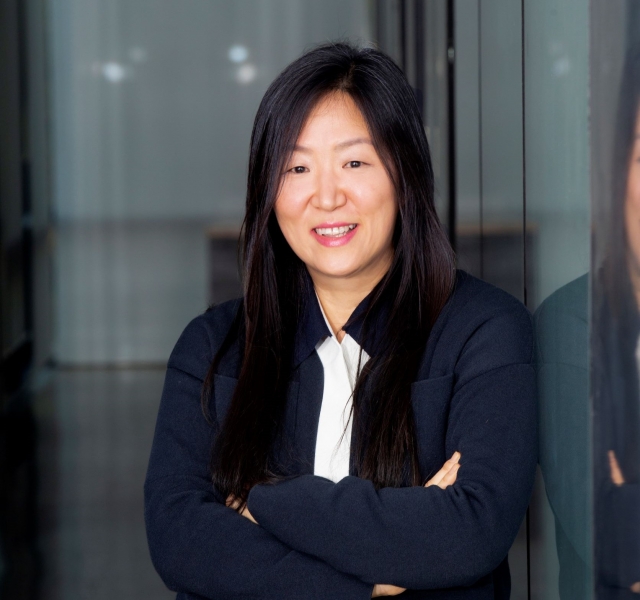
14th Gwangju Biennale Artistic Director Sook-Kyung Lee. Photo by Choi Ok Soo.
The biennial will examine how artists have been facing contemporary global issues, such as racial and class discrimination, climate change and environmental problems, the coronavirus pandemic, and the ongoing wars and refugee crisis, and will also present how these artists have been suggesting a direction for the future.
Gwangju is also known as the city of ‘Yehyang (藝鄕, a region of art and culture),’ where various traditional arts and crafts have been practiced, such as calligraphy, ink painting, pansori (a traditional Korean style of narrative song), and lacquerware. By drawing on the city’s strong tradition of artistic practices, the biennial will attempt to understand and connect the artistic traditions and teachings that have been passed down in other cultures that are often considered remote and unrelated on a transcultural level.
In other words, Soft and weak like water will attempt to re-think the existing structures of knowledge in a pluralistic way to suggest alternative ways of thinking and seek ways to coexist while respecting differences, seeking not only similarities but also the possibility of solidarity inherent in individuality.
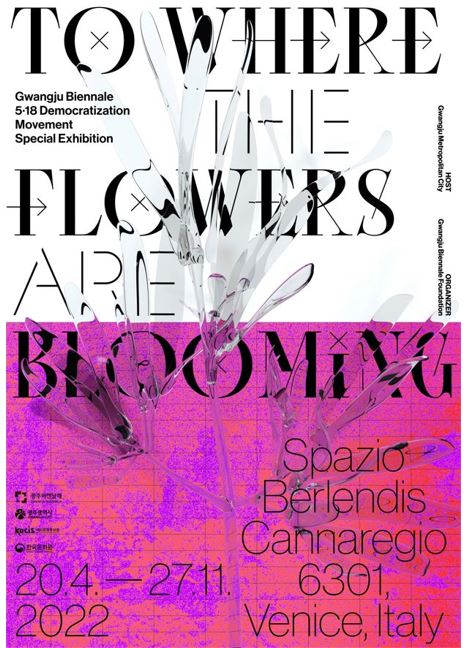
Poster image of "to where the flowers are blooming." Courtesy of the Gwangju Biennale Foundation.
The day the briefing session was held was also the opening day of the Gwangju Biennale Foundation’s touring special exhibition to where the flowers are blooming. The exhibition, first held in 2020 and which took place in Taipei, Seoul, Cologne, and Gwangju, will be held at the Spazio Verlendis until November 27 during the Venice Biennale.
The exhibition title is taken from a phrase in the last chapter of Hang Kang’s Human Acts, a novel that tells the story of the historic May 18 Democratization Movement and massacre. Instead of addressing the past, to where the flowers are blooming attempts to overcome past pains and share dialogues that can lead to future directions through the works of art.
The exhibition is composed of three sections; the archive section introduces the legacy of the 5.18 Democratization Movement in Gwangju, the second section presents commissioned works by the past Gwangju Biennales that survey the memories, trauma, and spiritual heritage of Gwangju City, and the third section reflects on the democratization movement in Gwangju and modern-day activism.
Participating artists include Hong Sung-dam (b. 1955), Kim Chang-hun (b. 1975), Noh Suntag (b. 1971), Park Hwayeon (b. 1990), Bae Young-hwan (b.1969), Suh Dasom (b.1984), Ahn Chang Hong (b.1953), Jin Meyerson (b.1972), Choi Sun (b.1973), Kader Attia (b. 1970), and Ho Tzu Nyen (b.1976). The exhibition presents a wide range of artworks, including paintings, photography, and installations.
References
- 광주비엔날레, 제14회 광주비엔날레 주제 발표
- Gwangju Biennale, The title of the 14th Gwangju Biennale is Soft and weak like water
- 광주비엔날레, 5ㆍ18민주화운동 특별전‘꽃 핀 쪽으로’개막
- Gwangju Biennale, Gwangju Biennale Foundation announces to where the flowers are blooming 5.18 Democratization Movement Special Exhibition in Venice, Spazio Berlendis



